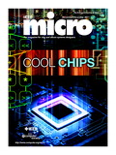
IEEE MICRO
Scope & Guideline
Driving Excellence in Microtechnology Research
Introduction
Aims and Scopes
- Microarchitecture Innovations:
The journal covers cutting-edge developments in microarchitecture, including novel processing techniques, memory hierarchies, and architectural design methodologies that enhance performance and efficiency. - Accelerator Technologies:
A significant focus is on hardware accelerators for specialized tasks, including AI, machine learning, and data processing, highlighting advancements in architectures such as FPGAs, GPUs, and custom ASICs. - System-Level Integration:
Research on integrating various components within computer systems, including memory management, interconnect technologies, and heterogeneous computing environments, is a core area of emphasis. - Energy Efficiency and Sustainability:
The journal promotes studies that address energy-efficient computing solutions and sustainable practices in hardware design, particularly in the context of large-scale data centers and edge computing. - Security and Privacy in Computing:
Research focusing on security vulnerabilities, privacy-preserving techniques, and hardware-based security mechanisms is increasingly relevant, reflecting the growing concerns in modern computing systems.
Trending and Emerging
- Artificial Intelligence and Machine Learning Accelerators:
A significant trend is the increasing focus on hardware designs specifically tailored for AI and machine learning workloads, including techniques for efficient inference and training. - Edge Computing and IoT Architectures:
Research addressing the unique challenges of edge computing and IoT, including low-power and efficient processing architectures, is on the rise, reflecting the growing importance of these applications. - Memory and Storage Innovations:
Emerging themes in memory technologies, including in-memory computing and novel memory architectures, are becoming central to discussions on improving performance and energy efficiency. - Heterogeneous Computing Systems:
There is a notable increase in research on heterogeneous computing systems that leverage a mix of processing units (CPUs, GPUs, FPGAs) to optimize performance for diverse workloads. - Quantum Computing and New Computing Paradigms:
The exploration of quantum computing and its integration with classical architectures is gaining attention, marking a shift towards future computing paradigms and their implications for microarchitecture.
Declining or Waning
- Classic Microprocessor Design:
There has been a noticeable reduction in publications focused solely on traditional microprocessor designs, as the field shifts towards more specialized and application-specific architectures. - Historical Perspectives on Microprocessors:
Research articles centered on retrospective analyses of microprocessor history and legacy systems are declining, suggesting a move towards more forward-looking and innovative research. - General-Purpose Computing:
The focus on general-purpose computing architectures is waning as researchers increasingly prioritize specialized computing solutions that cater to specific application domains such as AI and data analytics. - Low-Level Programming Techniques:
Studies emphasizing low-level programming techniques and optimizations are less frequent, possibly due to a shift towards higher-level abstractions and machine learning frameworks. - Legacy Systems and Compatibility Issues:
Research on legacy systems, including compatibility and integration issues with modern architectures, is declining, indicating a preference for exploring new technologies rather than maintaining older systems.
Similar Journals

Journal of Computer Security
Connecting researchers to pioneer advancements in cybersecurity.Welcome to the Journal of Computer Security, a premier publication dedicated to advancing the field of cybersecurity and digital safety. Published by IOS PRESS, this esteemed journal has been at the forefront of research since its inception, with a rich history spanning from 1992 to 2024. Based in the Netherlands, the journal aims to provide a reputable platform for researchers and professionals to disseminate innovative findings in various subfields, including computer networks, hardware architecture, and software engineering. With its current Q3 ranking across multiple categories and a focus on safety, risk, reliability, and quality, the journal plays a critical role in shaping contemporary discourse and fostering collaboration within the cybersecurity community. Though it is not an open-access journal, the Journal of Computer Security remains a vital resource for academics and practitioners alike, offering access to significant advancements and methodologies that guide the evolution of security practices worldwide. Engage with us and contribute to this dynamic field of study!
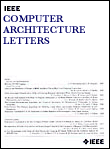
IEEE Computer Architecture Letters
Advancing Innovations in Hardware Design.IEEE Computer Architecture Letters is a distinguished academic journal published by the IEEE Computer Society, focusing on the dynamic field of computer architecture. With its ISSN 1556-6056 and E-ISSN 1556-6064, this journal has been a vital platform for disseminating groundbreaking research since its inception in 2002. As of 2023, it holds an impressive impact factor, being ranked Q2 in Hardware and Architecture, placing it among the top tier of journals in this domain (Scopus Rank #74/177). The journal aims to promote innovative ideas and developments in computer architecture that drive advancements in technology and engineering. Although it does not currently offer open access, it remains a pivotal resource for researchers, industry professionals, and students keen on exploring emerging trends and methodologies. Each published article contributes to a deeper understanding of hardware design, performance optimization, and architectural innovations, establishing IEEE Computer Architecture Letters as a cornerstone of academic excellence in the field.

JOURNAL OF SUPERCOMPUTING
Connecting Scholars in the Supercomputing CommunityJOURNAL OF SUPERCOMPUTING is a premier academic journal published by SPRINGER, situated in the Netherlands, that has made significant contributions to the fields of computer science, particularly in hardware and architecture, information systems, software, and theoretical computer science. With a robust publication history spanning from 1987 to 2024, this journal has cultivated a strong reputation, evidenced by its Category Quartiles ranking in the Q2 category across multiple relevant domains in 2023. The journal's Scopus rankings further underscore its influence, boasting a 78th percentile in mathematics and theoretical computer science, revealing the high quality of research disseminated within its pages. As vital discourse unfolds in the realm of supercomputing—where innovative techniques and technologies rapidly evolve—this journal serves as a crucial platform for researchers, professionals, and students to explore cutting-edge studies and build upon the foundations of knowledge in this dynamic field.

DESIGN AUTOMATION FOR EMBEDDED SYSTEMS
Connecting Researchers to the Future of AutomationDESIGN AUTOMATION FOR EMBEDDED SYSTEMS, published by Springer, is an esteemed journal focusing on the advancements in the design automation of embedded systems. With an ISSN of 0929-5585 and an E-ISSN of 1572-8080, this journal has made significant contributions to the fields of Hardware and Architecture and Software, as reflected in its Q3 ranking within the respective categories. Since its inception in 1996 and continuing through its ongoing publications until 2024, DESIGN AUTOMATION FOR EMBEDDED SYSTEMS provides a vital platform for researchers, professionals, and students to disseminate innovative research findings, methodologies, and technological developments. Although it does not currently offer open access options, its rigorous peer-review process ensures only the most impactful studies shape the future of embedded systems design. This journal is essential for anyone looking to stay at the forefront of research and development in embedded systems design and automation.
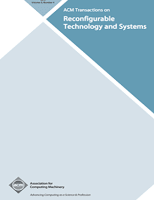
ACM Transactions on Reconfigurable Technology and Systems
Driving Progress in Adaptive Computing SolutionsACM Transactions on Reconfigurable Technology and Systems is a leading journal in the field of computer science, specifically focusing on the rapidly evolving area of reconfigurable technology. Published by the esteemed Association for Computing Machinery, this journal provides a vital platform for researchers and practitioners to share groundbreaking findings and innovative methodologies that drive advancements in system design, architecture, and implementation. The journal boasts a commendable impact factor and has positioned itself within the top quartile (Q1) of computer science journals as of 2023, with a notable Scopus rank of #64 out of 232 in the General Computer Science category, placing it in the 72nd percentile. As a trusted resource for the latest developments from 2008 to 2024, the journal encourages submissions that challenge conventional approaches and propose novel solutions in reconfigurable technologies. Although it is not open access, it continues to strive for accessibility and dissemination of knowledge that is critical for academics, industry professionals, and students alike.
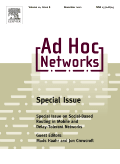
Ad Hoc Networks
Advancing Research in Dynamic Networking SolutionsAd Hoc Networks, published by Elsevier, is a leading journal in the fields of Computer Networks and Communications, Hardware and Architecture, and Software, with an impressive Q1 ranking in all three categories as of 2023. With an ISSN of 1570-8705 and an E-ISSN of 1570-8713, this journal offers a robust platform for disseminating cutting-edge research and advancements in network technologies, emphasizing the importance of efficient communication protocols and architectures in contemporary computing environments. Operating from the Netherlands, it has emerged as a pivotal resource for researchers and professionals seeking to explore novel methodologies, frameworks, and applications within the domain of ad hoc and wireless networks. The journal's high impact factor and Scopus rankings—44th in Computer Networks and Communications, 20th in Hardware and Architecture, and 53rd in Software—underscore its relevance and authority in the academic community. Ad Hoc Networks is committed to fostering a deeper understanding of the complexities and innovations in network design, making it an essential read for anyone invested in the future of communication technology.

COMPUTING AND INFORMATICS
Transforming Ideas into Technological AdvancementsCOMPUTING AND INFORMATICS is a peer-reviewed academic journal published by the Slovak Academy of Sciences Institute of Informatics, focusing on various aspects of computer science and its applications. Established in 2000, this journal has garnered attention for its emphasis on computational theory, computer networks, software development, and hardware architecture, placing it in the competitive landscape of academic publishing with currently a Q3 ranking in the fields of Computational Theory and Mathematics, and Computer Networks and Communications, as well as Q4 ranking in Software and Hardware and Architecture categories. Readers can access its findings through Open Access, promoting wider dissemination of innovative research. With an ISSN of 1335-9150 and an E-ISSN of 1335-9150, the journal serves as a vital platform for showcasing cutting-edge research in the field, aiming to bridge theoretical foundations with practical applications. This journal not only contributes to the academic community but also supports the ongoing advancements in technology and informatics, making it an important resource for researchers, professionals, and students keen on staying at the forefront of the field.
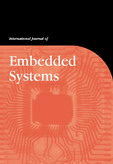
International Journal of Embedded Systems
Unveiling the Synergy of Software and HardwareInternational Journal of Embedded Systems, published by INDERSCIENCE ENTERPRISES LTD, is a pivotal platform for researchers and professionals engaged in the dynamic fields of embedded systems, hardware, and software architecture. Established in 2005, this journal addresses the intricate interplay between software and hardware components in embedded system design and offers valuable insights into the latest advancements and methodologies. With its ISSN 1741-1068 and E-ISSN 1741-1076, it showcases rigorous peer-reviewed articles that contribute significantly to ongoing discourse and innovation in the field. Despite its current ranking in the Q4 category for both Hardware and Architecture and Software, the journal serves as a crucial resource for the development and enhancement of embedded technology. Researchers are encouraged to explore this journal to stay abreast of emerging trends and foster collaborations that advance knowledge in this complex domain. Note that the journal does not currently offer open access options, which may affect dissemination and accessibility for the wider academic community.
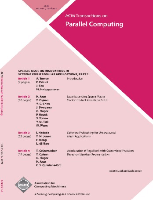
ACM Transactions on Parallel Computing
Driving Progress in Parallel and Distributed TechnologiesACM Transactions on Parallel Computing (ISSN: 2329-4949; E-ISSN: 2329-4957), published by the Association for Computing Machinery, stands as a pivotal journal in the field of computer science, particularly focusing on the advancements in parallel and distributed computing. With its convergence years spanning from 2014 to 2024, this journal serves as a significant platform for disseminating cutting-edge research, methodologies, and technologies that shape the future of computational theory, hardware architectures, and effective software solutions. Although it currently holds a Q3 category ranking in various subfields including Computational Theory and Mathematics, and Modeling and Simulation, it continues to attract researchers aiming to contribute to its growing impact in the field. The journal's commitment to fostering knowledge exchange makes it an essential resource for professionals and students eager to navigate the complexities of parallel computing. As the field evolves, ACM Transactions on Parallel Computing remains a critical reference point for innovative research and professional development in computer science.
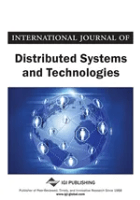
International Journal of Distributed Systems and Technologies
Fostering Collaboration for Technological Breakthroughs.Welcome to the International Journal of Distributed Systems and Technologies, a prominent academic platform published by IGI Global dedicated to advancing the field of distributed systems and technologies. With an ISSN of 1947-3532 and an E-ISSN of 1947-3540, this journal, established in 2010 and continuing through 2024, offers a unique venue for researchers, professionals, and students to disseminate their findings in the realms of computer networks, communications, hardware, and architecture. Despite its current placement in the Q4 quartile for both computer networks and communications and hardware and architecture categories in 2023, the journal is committed to fostering innovative solutions and interdisciplinary collaboration that can drive future advancements. Although not open access, contributions to this journal not only receive rigorous peer review but also have the potential to significantly impact the community, underscored by a focus on applicable research that addresses the emerging challenges in technology. As part of a rich repository, the journal invites you to explore its latest issues and join in shaping the future of distributed systems.